Editor's note: This is the 78th article in the COVID-19 Global Roundup series. Here is the previous one.
02:16
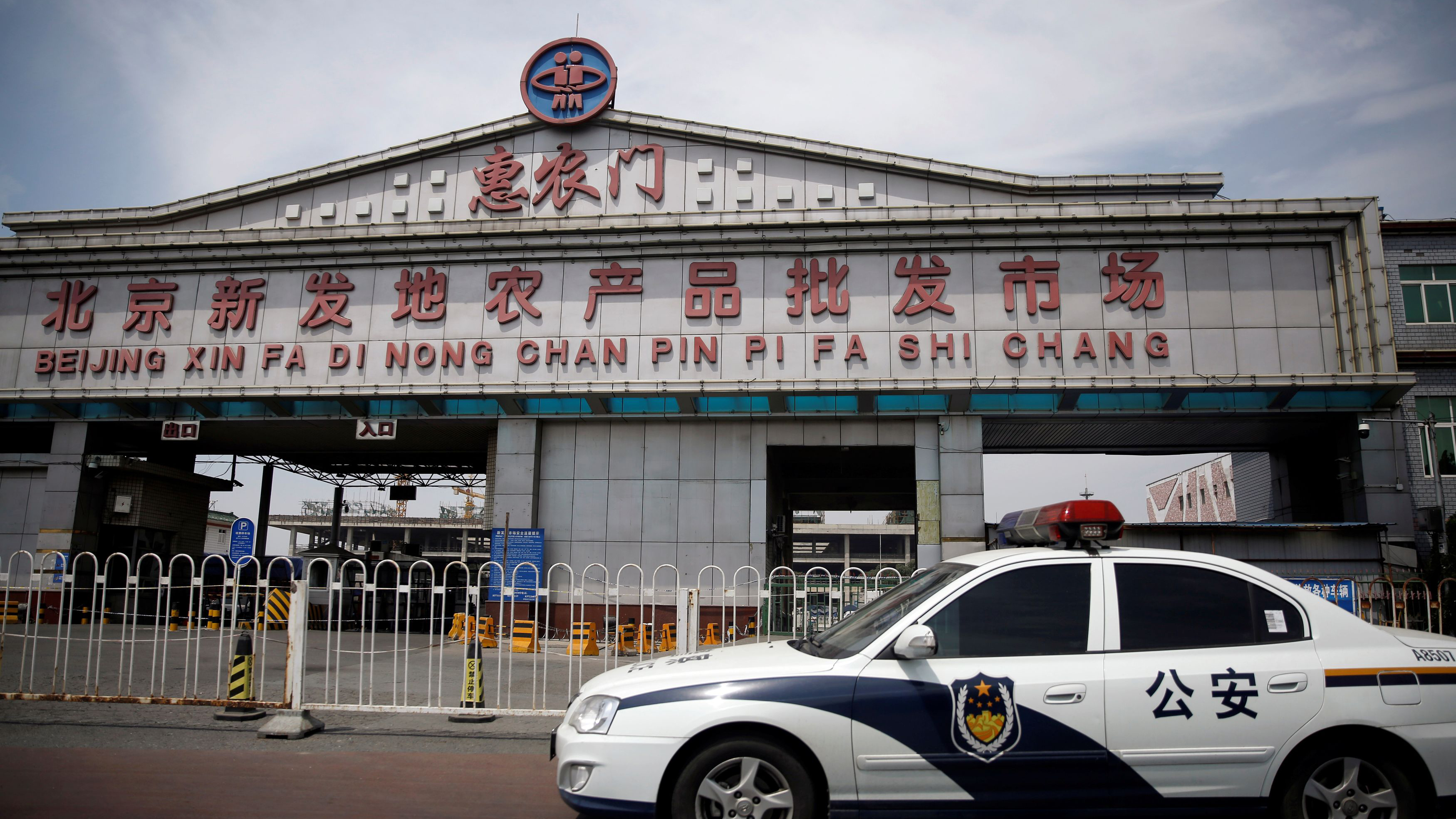
Countries all over the world are announcing their plans to emerge from COVID-19-inflicted lockdown, and Asian countries are no different.
Many Asian countries have taken measures to prevent and control the rebound of the epidemic. The cumulative number of confirmed cases in India exceeds 320,000. Japan, South Korea, Singapore and China have also taken measures to deal with repeated epidemics in their respective capital regions.
Japan
Japan's Ministry of Foreign Affairs said 17,502 people had tested positive for COVID-19 in the country as of June 15.
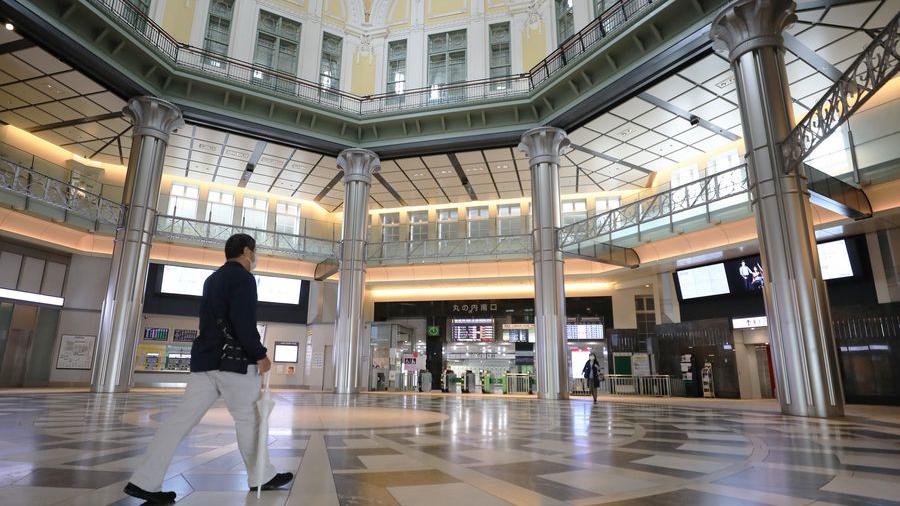
Few passengers are seen at Tokyo Station in Tokyo, Japan, May 4, 2020. /Xinhua
Few passengers are seen at Tokyo Station in Tokyo, Japan, May 4, 2020. /Xinhua
Tokyo has witnessed a resurgence in infected cases after a steady decline since the end of May. According to Kyodo News, the Tokyo government on June 15 reported 48 new COVID-19 infections, setting the highest single-day record since the state of emergency was lifted on May 25 for the second consecutive day.
Japanese Prime Minister Shinzo Abe on May 25 lifted the state of emergency that had been in place since April.
The Japanese government revised the policy for the prevention and control of the new coronavirus and announced the "phased relaxation standards" involving social and economic activities.
According to the new standard, large-scale antibody testing began on June 1, and tens of thousands of people were randomly selected for testing in late June. It is expected that 1,000-person events will be allowed after June 19, and the degree of lifting will be adjusted approximately every three weeks.
Except for tourism, nationwide flows will be lifted from June 19. Concerts and exhibitions must be held in and "unblocked" area, and indoor events need to be under 100 people and outdoor must be under 200.
From July 10, the maximum number of participants will be expanded to 5,000, and the maximum number is expected to be cancelled on August 1.
South Korea
South Korea, one of the countries earliest-hit by the coronavirus, announced on June 3 the lift of social-distance regulations implemented two and a half months ago. The country did not enforce home confinement, but will now ask citizens to follow four new basic regulations, including self-isolation for three or four days if they fall ill.
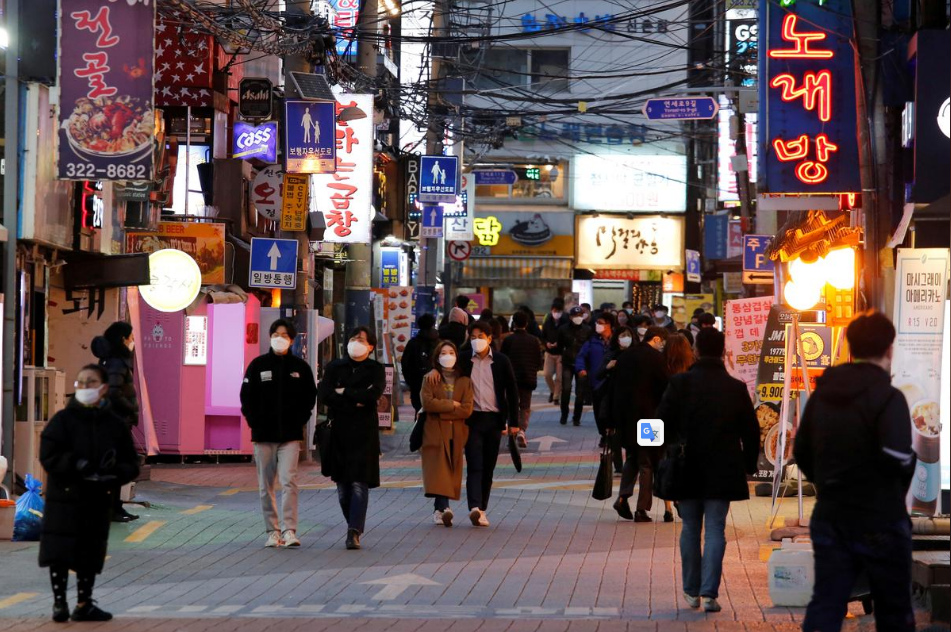
A street in central Seoul, South Korea, April 22, 2020. /Reuters
A street in central Seoul, South Korea, April 22, 2020. /Reuters
Schools in the country reopened on June 13, with senior pupils preparing for university entrance exams to return first and younger pupils from June 20. Elementary schools and kindergartens in the metropolitan area will have their closures extended to June 30.
The Minister of Health and Welfare announced the same day that the enhanced version of the epidemic prevention measures implemented in the metropolitan area will be extended indefinitely until the number of new cases dropped to single digits in a single day.
At the same time, they would expand the designation of high-risk sites for virus infection, and training institutions and Internet cafes in the metropolitan area would implement an electronic access registration system based on QR code scanning.
The Ministry of Culture, Sports and Tourism subsequently announced that it would suspend the opening of cultural facilities such as national museums, libraries, art galleries, and theaters in the metropolitan area, as well as well-known some well-known attractions.
To date, the country has 12,155 confirmed COVID-19 cases and 278 deaths. UN Secretary-General Antonio Guterres has recently sent a letter to South Korean President Moon Jae-in, highly appraising the government's anti-epidemic measures as a model for other countries.
But the fight against COVID-19 is not over, warned Jeong Eun-kyeong, director-general of the Korea Centre for Infectious Disease Control and Prevention.
There have been many infection clusters and some confirmed unknown infections occurred in the metropolitan area and are still continuing, It is necessary to prepare for the second wave of outbreaks.
Singapore
On June 15, Singapore's Ministry of Health announced that Singapore would enter the second phase of measures to lift epidemic control at 23:59, local time, on June 18.
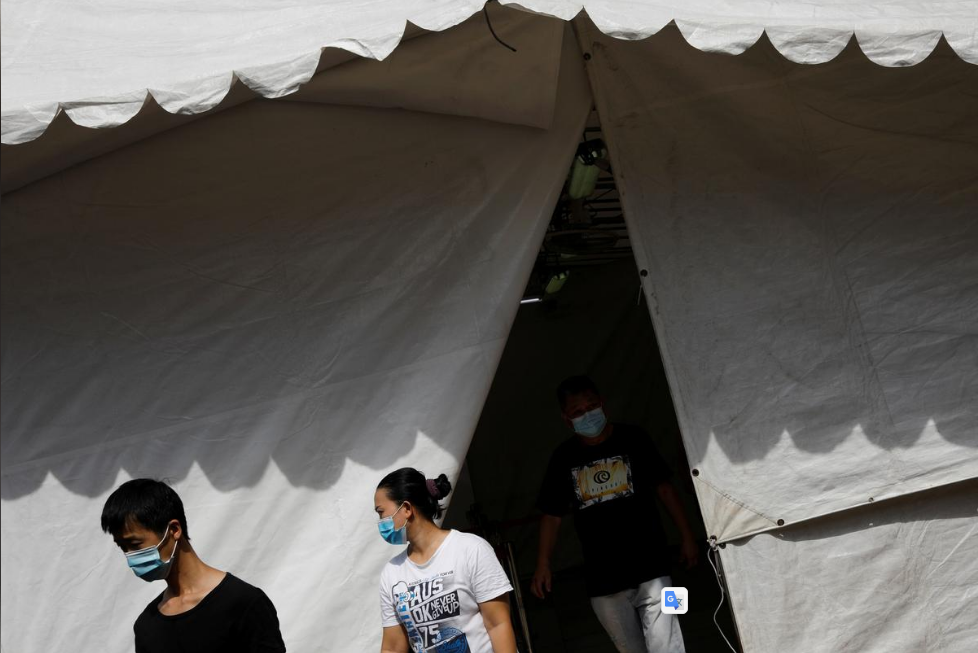
A thermal scanning station, while buying groceries, amid the outbreak of COVID-19 in Singapore, April 23, 2020. /Reuters
A thermal scanning station, while buying groceries, amid the outbreak of COVID-19 in Singapore, April 23, 2020. /Reuters
In the second phase, Singapore will conditionally lift some restrictions on activities such as dinning in restaurants, retail physical store operations, and visiting relatives and friends, and schools would resume classes in full.
The government's goal is to gradually reopen economic and social activities while controlling infection and providing maximum protection for vulnerable groups.
Singapore began to implement an epidemic lockdown measure in April. When the measures expired, the country gradually lifted its control restrictions in three stages from June 2. In the first phase, the government resumed economic activities that belonged to an important area but had lower risks.
Meanwhile, Singapore has made adjustments to border control measures: Passengers entering Singapore after 23:59, local time, on June 17 should get tested for the new coronavirus after completing the 14-day quarantine.
According to the data released by the Ministry of Health in Singapore on midday June 15, Singapore had 214 newly confirmed cases, bringing the total to 40,818. 777 new cases were cured, bringing that total to 30,366, with 26 deaths.
China
Since the emergence of the epidemic, China has taken very strict measures, and the epidemic prevention effect is also good. As of June 16, there are 84,823 confirmed cases in China, and 79,922 people were cured. There are 256 existing confirmed cases. Unfortunately, COVID-19 hit back in Beijing, China's capital.
Beijing detected one COVID-19 case at a wholesale market in the Xicheng District on June 11. Previously, Beijing had no new confirmed cases for 56 consecutive days. The Beijing Center for Disease Control immediately launched a traceability investigation and the Information Office of Beijing Municipality held the 112nd news conference at 4 p.m. that day to discuss the new case.
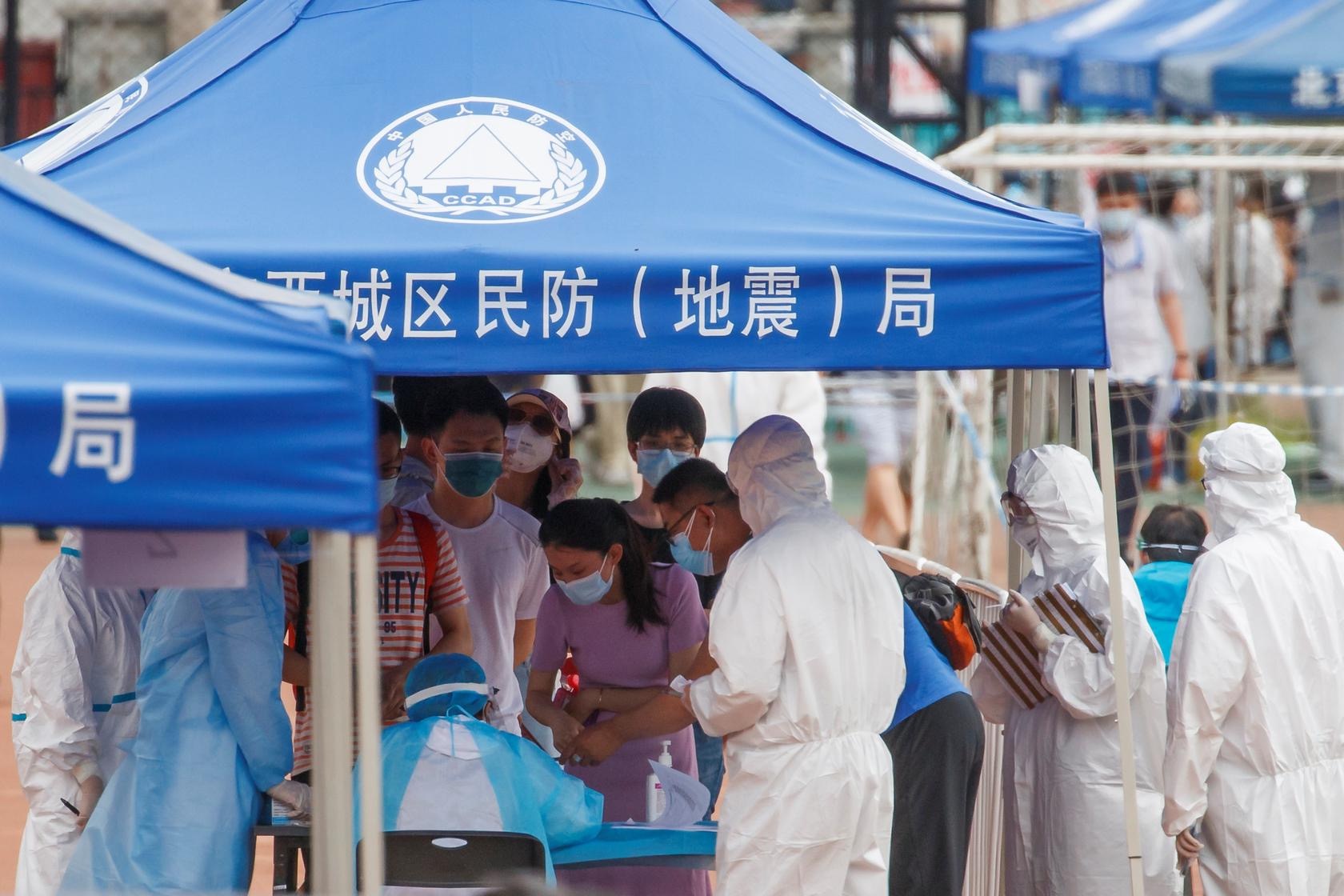
People line up to get tested for coronavirus at the Guang'an Sport Center following an unexpected spike of COVID-19 cases in Beijing, China, June 15, 2020. /Reuters
People line up to get tested for coronavirus at the Guang'an Sport Center following an unexpected spike of COVID-19 cases in Beijing, China, June 15, 2020. /Reuters
The district has since implemented lockdown measures at the affected location. A total of 62 individuals linked to the market were put under quarantine and tested for coronavirus. All results have come back negative.
The Beijing Municipality's Information Office held seven news conferences about COVID-19 as of June 15 23:59 BJT since June 11 to report the latest progress of the epidemic situation.
The Beijing Municipal Education Commission on June 12 stated that it was temporarily suspended from returning to school on June 15 for the first, second and third grades of primary schools, suspended off-campus training institutions to resume offline courses and collective activities.
Beijing is in a critical coronavirus prevention situation following the fresh cluster of infections linked to Xinfadi wholesale market, said Cai Qi, Party chief of the Beijing Municipal Committee of the Communist Party of China (CPC) on June 15. "Epidemic prevention and control has to be the top priority and the most urgent task for the city".
Beijing has ordered the inspection of farm produce markets, vegetable markets, dining venues and canteens of government organs on their virus prevention measures and the disinfection of the locations.
The city will guarantee market supplies to meet residents' daily needs and maintain the stability of prices. Business owners who engage in price gouging will be penalized, said Cai.
The importance of thorough nucleic acid testing was also emphasized for all individuals who had been to Xinfadi and stall owners at markets across the city.
As of the morning of June 16, the city has disinfected 276 farm produce markets and 33,173 catering businesses. A total of 11 underground and semi-underground markets have also been shuttered.
Officials expect to complete disinfection for all catering service units in the city by the end of Tuesday.
Beijing reported 27 new domestically transmitted cases on June 16, bringing the total number of new cases since Thursday to 106.
(With input from agencies)